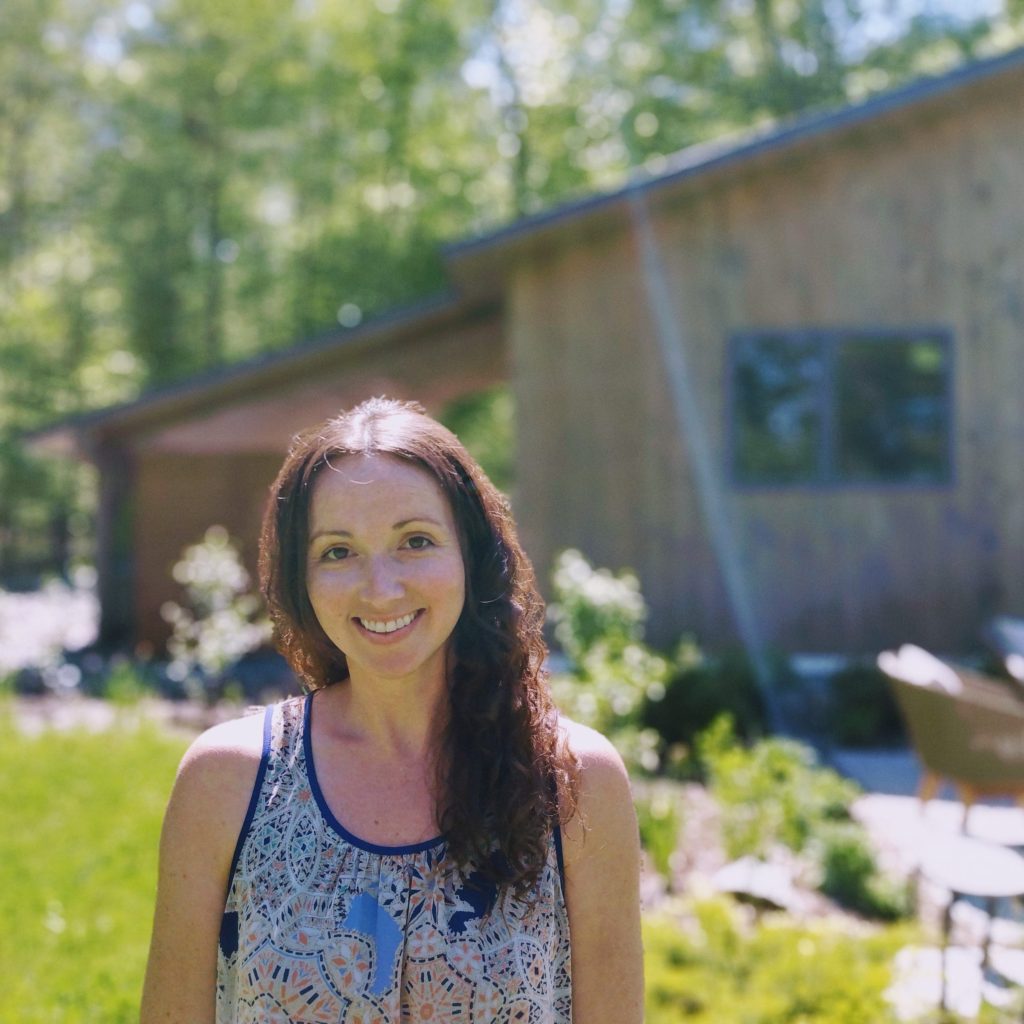With just 8,300 short-term rentals across the entire state1, Vermont might not seem like an important state to watch. But that couldn’t be further from the truth. Because the state is so small, it sometimes serves as a testbed for legislation other states could model, and that includes STR regulations. It’s also home to one of the most innovative STR alliances, the Vermont Short-Term Rental Alliance (VTSTRA.)
The organization’s founder and director, Julie Marks, got into vacation rentals by accident. Her mom was running a bed-and-breakfast in Burlington, Vermont’s most populated city. She handed the property over to Julie in 2017, who lived there for a period of time after moving back to the state and starting her own consulting company.
“I got into vacation rentals as an adaptation from her bed and breakfast business and as a way to support myself while I was following my dreams, going down a different path.” Ultimately, the consulting business flopped, but the short-term rental business, Homestead & Hospitality, took off. She found a new love in hospitality and the flexibility it offers her. She now manages one short-term rental and two long-term housing units on the former B&B property where her family used to live.
Showing Up and Raising a Hand
Julie’s introduction to advocacy came 2019 after a notification from an OTA about a Burlington Planning Commission meeting about STRs. She showed up, along with dozens of other advocates, to speak up in favor of short-term rentals.

“I remember my first testimony in front of the Burlington Planning Commission was terrifying,” she said. “I had no idea how the regulatory process even worked, I didn’t understand where they were in the development of their ordinance – all I knew was that somebody in the room was saying ‘We need to ban short-term rentals.’”
When it was her turn to speak, she explained to the commission what short-term renting was all about and the consequences of banning STRs would include putting people like her out of business.
From that commission meeting snowballed a community-wide and then statewide effort to change the narrative about STRs and engage in the legislative process. Another advocate in attendance, Deb Ward Lyons, began collecting the names and contact information of STR advocates to form a loosely organized group. Amongst them, a group of leaders surfaced, and the group became known as the Burlington Short-Term Rental Host Coalition.
Other communities began stirring when the state legislature introduced House Bill 200 and Senate Bill 79 in 2021. S.79 was the state’s continued attempt at the nation’s first statewide rental registry which would have included short-term rentals. H.200 would have made it impossible for out-of-state owners to rent their Vermont homes as vacation rentals.

Sibylle Kim is based in Cambridge, Massachusetts. She and her family have owned a vacation home in Waterbury, Vermont, since 2005 for their family ski vacations away from the busy city. They fell in love with the property, but it was too big for a family of four and outside of what they could afford, Sibylle said. So, they decided to rent it out as a vacation rental home to larger guest groups when they were not there themselves.
“I have raised a family in that house and – along with at least 4,000 guests – have made many happy memories there, and it’s a part-time job,” she said. Had H.200 passed, she would have had to sell the property.
Puzzle Pieces Coming Together
The state bill prompted Julie to see the growing needs outside of Burlington, too.
“I was already so outraged by what was happening to me in Burlington that the introduction of the state-level bill was the tipping point,” she said. “I had worked so hard building the life that I was dreaming of and wanting for myself, and suddenly somebody who doesn’t know me, who has no idea what I’m doing or how I’m doing it, is assuming that I am causing a problem and causing harm in my community. It was so personally insulting to me that I couldn’t not do something.”
So, she led the creation of VTSTRA, of which the Burlington group is now a chapter. She had no experience in the political process or speaking with legislators, so she started with the skills she did have to get the effort off the ground: creating a website, writing op-eds, and writing to legislators.
Meanwhile, Sibylle had long followed industry news and began attending industry conferences in 2015, so she could see the dark cloud coming, she said. “I’d been dreaming to find somebody in Vermont to come out of the woodwork and take on bigger advocacy issues.”
In March 2021, she came across Julie’s work and was immediately impressed and wanted to team up with her. Sibylle’s perspective as an out-of-state owner and skills from previous career experiences complemented Julie well. Sibylle had been a clinical researcher, a job that fostered her analytical and methodical approach to challenges and voracious appetite for reading and tracking trends. She also used to work in healthcare marketing, which taught her about the power of networks and knowing key players, and as a parent, she volunteered in school fundraising and donor development.
Over the spring, they recruited three additional volunteer leaders to bring in additional skills and perspectives, add credibility, and ensure compliance with Vermont’s rules for nonprofit organizations. They also began collecting donations, which enabled them to hire a lobbyist to provide political guidance, help them get up-to-speed on everything happening in the state, and how to effectively navigate the legislative process.
However, an early snafu with a Change.org petition intended to drive donations meant VTSTRA had the budget to hire a lobbyist for just two months. That ended up being just enough to carry them through the 2021 state legislative session which ended in May with Governor Scott vetoing Senate Bill 79.
But Julie and Sibylle knew that meant it was only time to begin preparing for the next council and state legislative seasons. In part, that meant figuring out how to retain a lobbyist longer and have a larger, more sustainable budget in general.
So the duo scoured the alliances listed in Rent Responsibly’s directory and interviewed their leaders to see how other groups were leveraging memberships. They also surveyed their members to find what was most important to them. The results: advocacy, community, and education. In those veins, they’ve created resources for not just their members but also other community stakeholders as well, such as a policy whitepaper for local governments and an upcoming guide to help members engage with their HOA boards.
Their next big foray is a two-day conference with a goal to change the narrative around Vermont STRs and encourage new members to join. The Vermont Short-Term Rental Conference and Trade Show on June 2 and 3 in Montpelier has agenda features for and by STR operators and government agencies alike.
“We’ve had to be brave in trying different tactics to see what works, and listening to the requests that are coming in and taking advantage of any opportunity that’s presented to us,” Julie said. “In your first year, you don’t have the luxury of saying ‘no;’ you say ‘yes’ to everything and you just figure out a way to do it.”
This pattern of learning and trying new things step by step continued throughout the year, and at each step they leaned on the collective wisdom of others in our industry doing the same thing. “Once you start raising your hand and announce ‘We’re starting something,’ people are ready,” Sibylle said. “They are waiting for people like us, and we are immediately connected with others.”
No Invitation Necessary
Sibylle calls this spirit of learning and experimenting being “eyes wide open.” Julie calls it “opportunistic.”
Both characteristics are exemplified in their willingness to claim a seat at the table, even when one is not offered to them. Last fall, they decided to sponsor a booth at the Vermont Tourism Summit. The event had not historically had an STR presence.
It was an attempt to confront their opponents, Julie said. From the beginning of her efforts, Julie had been reaching out to entities who had been speaking poorly about STRs, like the Vermont chamber of commerce and hotel and lodging establishments, as well as an important voice taking a decidedly quiet stance, the tourism department.
By inviting themselves, they were able to sit in on the lodging association board meeting and meet with its president for an hour. The conversations uncovered their issues with vacation rentals, which were all based on old information, outdated fears, and misconceptions, Julie said. “We had a great talk, and I talked him through how that’s not the case anymore, and we came to common ground on where we think short-term rentals need to be regulated,” she continued. “It was a very effective move to just insert ourselves at the table and not wait for that invitation.”
Now, the state is inviting them to the table. In April 2022, Julie was one of a small number of people invited by the House Committee on General, Housing, and Military Affairs to speak in person on Senate Bill 210. The bill is a reincarnation of the 2021 registry bill, but this time legislators are seeking out the voice of the short-term rental community via VTSTRA – and actually listening. Amendments to the bill reflect requests made by Julie and other advocates.
Read more: Vermont Scraps State Rental Registry Attempt, Retries for Housing Programs and Local Rules
Attending the tourism summit had other domino effects, too. It was there that they were invited to attend VRMA Connect in Maine that December. From that, Julie was later invited to be one of four mainstage panelists discussing advocacy at the VRMA Spring Summit in April 2022, which drew additional recognition and sponsors for their own conference. Sibylle, too, took another stage: being a featured guest on a recent episode of the Sarah and T podcast.

The Conversation Continues
Back in Burlington, where it all started, the Burlington group was able to hold back a vote for two years. When the city council finally voted in February 2022, the council members were split enough to pass the ordinance only narrowly. The mayor then vetoed the ordinance, and the council did not have enough votes to override the veto.
The result was years of effort for dozens of people, Julie said. “It was just the endurance of hosts repeatedly showing up to continue the conversation and not letting it die,” she said. “It became a topic that was really deep and well known by some councilors. At the end, it came down to some very motivated volunteers within VTSTRA, within the Burlington chapter, who were able to establish those personal relationships with their councilors.”
She credits this relationship-building as well as listening to the individual concerns of each council member and the mayors and then approaching those conversations in a tailored way with an overall unified message, reasonable requests, and the data to back them up.
Julie also notes the role of vulnerability and emotion deployed strategically. “Often it is not the leader that’s most influential,” she said. “It’s the person that may be perceived as more vulnerable than a leader who finally finds the courage to pick up the phone or write a letter. And that’s what sways somebody’s mind, because they’re worried about this person who’s coming from a place of vulnerability, rather than a leader who’s coming from a position of a little bit more power. They’re perceived very differently, even if they’re delivering the same message.”
The Fun to Come
Despite all the progress and success they’ve reached in little more than a year, the VTSTRA and its chapters are just getting started.
Both Julie and Sibylle noted the seasonality of advocacy; just because a session ends or a vote happens, the legislative discussion will continue. For example, as soon as the newly elected Burlington City Council members took their seats in April, they began working on a new ordinance draft.
“Sustainability for our organization means having that ebb and flow of times where it’s going to be a lot of work and it’s going to be all hands on deck, and then you’re gonna have times when you’re kind of lying dormant,” Julie said.
Sibylle looks forward to spending those moments on community-building work, like the June conference. She also recently launched her own chapter of VTSTRA in Waterbury and hosted a networking event called Sip ‘n’ STR. In these recurring events, local STR operators can gather over drinks for casual discussions about non-advocacy things, like housekeeping referrals or the challenges of laundry. Sibylle hopes to see new collaborative ideas and entrepreneurial endeavors spring out of these meetups.
“There are so many opportunities long-term of what this could grow into,” she said. “And I think that will be the fun part.”
•••
SUBSCRIBE TO GET UPDATES




